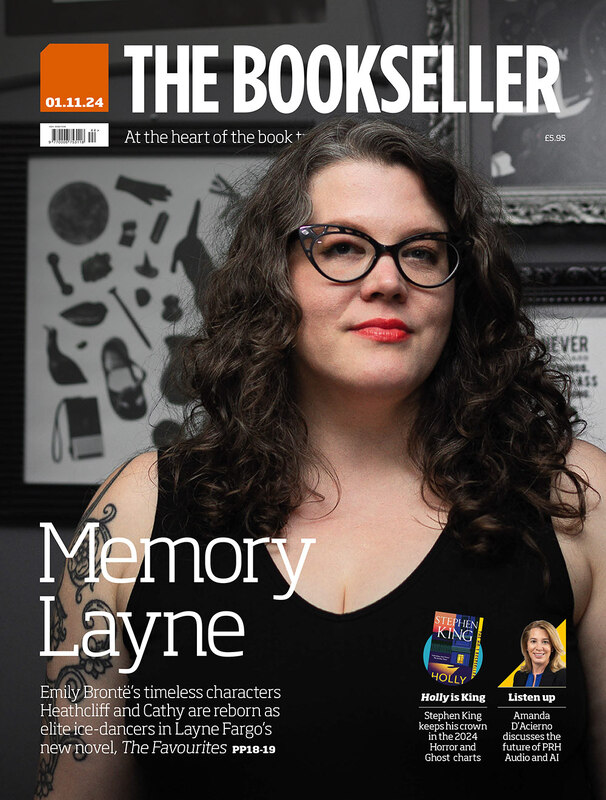You are viewing your 1 free article this month. Login to read more articles.
The secret of your staff's success
What does it take to be a brilliant bookseller? Enthusiasm, talent... and proper support.
What makes a good bookseller? A love of books is handy, but other than that, what experience, skills and personal traits does it take for a bibliophile to become a bookseller? Where do you find Meg Ryan and how do you avoid hiring Dylan Moran?
These were questions I asked myself a lot over the summer. We were readying to expand one shop and open a second, and I had to hire five new members of staff in order to do so. I had to advertise for the positions, examine the CVs and then benevolently interrogate the candidates. I spoke to students, graduates, ex-teachers, writers and illustrators, none of whom had worked in a bookshop. Maybe I should just stick with experienced booksellers, I thought. Then I considered my own meandering career path.
I’ve worked since I was 12. Not in a Dickensian way, I wasn’t up chimneys or down pits, but I’ve had a job for most days of my life since that age. I was a paperboy, dishwasher, lifeguard, hander-outer-of-flyers, musician, music journalist, coffee-maker (I wasn’t skilled enough to call myself a barista), barman, DJ, clothes seller, radio producer, copywriter and advertising producer. The one job title conspicuously absent from that list? Bookseller.
Until Jess (my wife) and I opened our bookshop I had never sold a book. What made me think I could be a bookshop owner without having been a bookseller? Stupidity and hubris mainly. But also a history of bluffing. There’s one job title missing from my earlier career list – Retail Assistant, Tesco, Wine and Spirits section. I was 16 at the time I held this position.
You can help anyone become a bookseller. You can open the doors to one of the most enjoyable jobs in the world. But you, the employer, needs to take responsibility for their success.
As you will notice, there’s a fundamental flaw in that arrangement. I was recommending products I was not legally allowed to try, let alone buy. The only drinks I could recommend to pair with Beef Bourguignon were Yazoo and Um Bongo. Or White Lightning and Hooch, if the scurrilous rumours repeated to my dad by my younger brother are to be believed. But I had an undeserved amount of confidence, a VHS of a 1980s cinematic masterpiece and a plan.
In The Secret Of My Success, Michael J Fox quickly scales the career ladder of his uncle’s financial firm, from post room to executive suite. Selling supermarket own-brand wine to the middle managers of a country town isn’t exactly the same thing I’ll agree, but there were some shortcuts I could copy. Just like Michael’s stockbroker wannabe, I covertly scoured the company memos (bottle labels), I spied and eavesdropped on the experts (customer discussions), and I mastered the art of the bluff (choose two reds, two whites and two roses and learn their descriptions by heart). With just enough information and a little too much self-assurance, I was soon selling sauvignon and sangiovese like a sommelier.
What’s my point? Oh yes... as an employer you don’t have to hire the finished article. You can hire potential. You can teach someone how to work a till and how to order a book. Your experienced staff can demonstrate the art of handselling and explain why you never get into a discussion on politics with Mr Stevenson. You can help anyone become a bookseller, provided they have a love of books, a friendly respect for customers and the willingness to learn. You can open the doors to one of the most enjoyable jobs in the world. But you, the employer, needs to take responsibility for their success.
In the end, I hired a mixture of experienced booksellers and complete newcomers. The experienced booksellers can hit the ground running, the newcomers will have a fresh enthusiasm; how any of them perform is down to me. If they don’t know which books to recommend to our regulars, I need to give them some insight and tips. If they mess up a customer order I need to explain the intricacies of the stock management software more clearly. If they’re upset or not engaging with customers, I need to ask if they need help or just five minutes to themselves. As an employer, my staff are my responsibility.
I’ve tried to make them all feel welcome, to explain what’s expected and to give the shop managers the freedom to create their own bookish idylls. I’ve tried to explain how everything works but I’ve definitely missed some bits and got other bits wrong. Amidst the maelstrom of lease negotiations, building work, and MIA commercial waste companies, I’ve definitely taken my eye off the ball when it comes to training.
Now I’m taking steps to fix it. I’m asking our team what help they need, what systems they don’t understand, what gaps in their knowledge they’d like to fill. Then I’ll arrange training sessions, cheat sheets and anything else needed to remedy the problems. It’s a lot of responsibility, more than I thought about when opening the shops. But if I don’t like it, if I’m not prepared to shoulder it, well, in that case I don’t deserve to be an employer. If all I want to do is sit among the shelves and wait for customers to throw their money at me, then I should buy an overcoat, start daytime drinking and call myself Bernard.


















